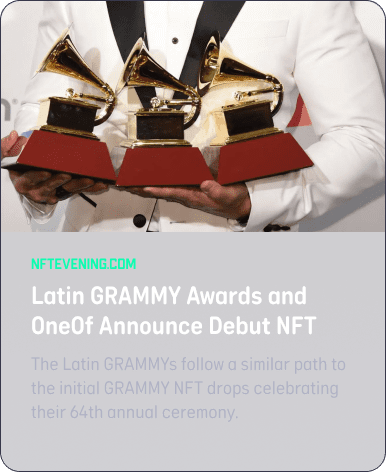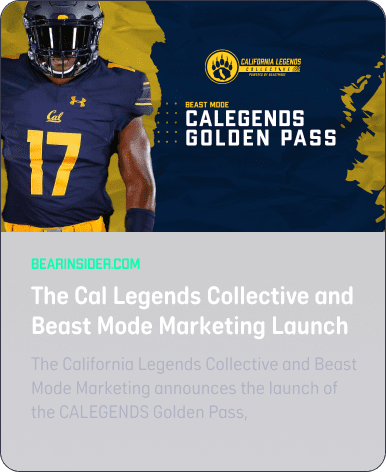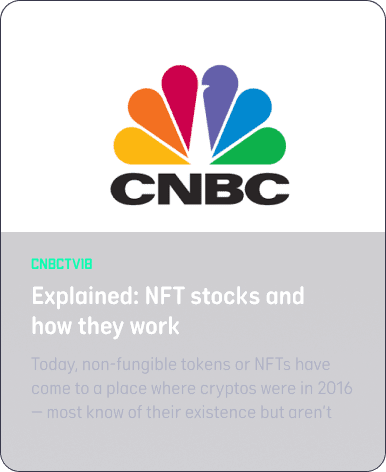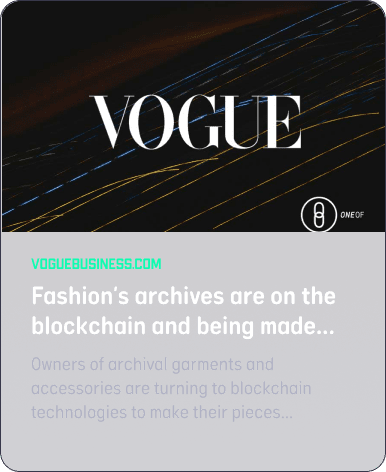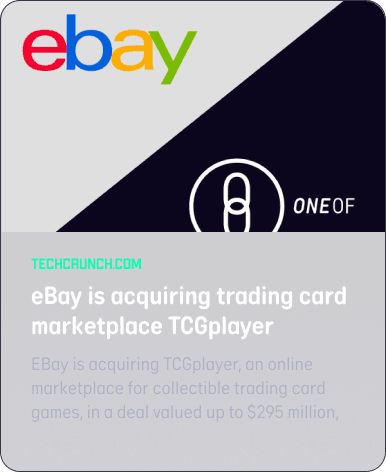OneOf Breaks New ‘Phygital’ NFT: A New Frontier For The Industry
Non-fungible tokens (NFTs) have received heavy criticism that they are driven by pure speculation and low-value art. But even if these critics are right, blockchain experts explain that digital art is only the tip of the iceberg of use-cases because NFTs are about authentication and ownership that connect physical objects with their digital counterparts, also known as “phygitals.”

Non-fungible tokens (NFTs) have received heavy criticism that they are driven by pure speculation and low-value art. But even if these critics are right, blockchain experts explain that digital art is only the tip of the iceberg of use-cases because NFTs are about authentication and ownership that connect physical objects with their digital counterparts, also known as “phygitals.”
Historical collectibles provide one of the most obvious use cases since the provenance of the object is of greatest importance. “Digital proof-of-ownership that is immutably recorded on a blockchain can not only proliferate digital assets, but also authenticate physical assets. We live in an omni-verse world that is a hybrid between physical and digital experiences, and NFT is a bridge that can connect these in a seamless way,” said Lin Dai, CEO of the web3 platform OneOf.
Today, OneOf announced a new partnership with Globe Entertainment and Media, custodians of the world’s most famous archives, to “bring iconic images of musicians, movie stars, comic book characters and cultural events into Web3, bridging physical and digital worlds together.”OneOf and Globe will launch the Legends of Rock: Summer of Love in honor of the Monterey Pop Festival’s 55th anniversary, featuring photographer Jill Gibson known for her publishing of Jimi Hendrix’ Rolling Stone cover shot from the original 1967 festival.
At the festival, 99 editions of each photograph will be printed and sold with digital analogues minted as NFTs, providing holders an opportunity to own part of rock and roll history. Each photograph is printed on Hahnemuhl Photo Rag 188GSM, numbered and signed by Jill, and every purchase comes with a secure digital certificate of authenticity inspired by the rock and roll photography curator, Chris Vranian, confirming a holder’s ownership of the limited-edition print and NFT.
“It’s a delicate process, merging our analog relics with our digital future,” said Klaus Moeller, CEO of Globe Entertainment and Media. “OneOf has a history of working with integrity while handling historic IP and we knew they would be the perfect partner to help us realize this vision.”
The announcement by OneOf comes on the heels of another major announcement of an $8 million round of capital raising led by American Express Ventures, coupled with a partnership to provide American Express card members access to exclusive pop-up events inspired by color theory and therapy at Lucca Beach inside the Mandarin Oriental in Bodrum Turkey.
“NFTs can enhance traditional ticketing and membership programs by providing both gated access and proof of authenticity, which are the two pillars of any membership experience. But unlike traditional memberships, NFT based memberships provides its holders liquidity to resell the membership at any time, making it superior to traditional programs,” Dai said.
NFTs are also becoming a “stamp of approval” within even the postal service. The Austrian Post, the national postal service for Austria, began issuing crypto stamps in 2019 where each physical stamp would come with a free NFT with a hidden digital color and scarcity. The announcement attracted collectors who wanted to store a NFT of their letter in their digital wallet, commemorating a communication or event. It became one of the most successful NFT projects in the world with nearly 1 million stamps and NFTs released so far, now trading at several thousand euros.
And in a radical step forward in July, the Austrian Post started selling the NFT first, focusing on the art: a digital representation of the “red mercury” – the most valuable vintage stamp in Austria that began in 1856. Those who buy one of their 2,500 exclusive crypto stamp art “mystery boxes” can obtain not only a limited-edition physical stamp, but also four NFTs that vary in rarity.
“Blockchain technology allows for the secure storage of information and ownership, in addition to connecting physical products with their digital counterparts through the use of NFC chips implanted into the final product… this combination of physicals and digitals is often referred to as ‘phygitals,” said Michael Dorner, CEO of Variussystems and current president of the International Card Manufacturers Association (ICMA). These crypto stamp art pieces are just one demonstration of the phygital concept, providing collectible art and a guarantee of authenticity and security of physical mail.
While NFTs have been used to store art, they can also store a wide array of other information, ranging from origination on mortgages to processing routes for supply chain management. “Products that are securely connected to an NFT via NFC chips, for example, can be easily verified on the blockchain, allowing users to check whether the product is the original,” Dorner said.
If NFTs can be applied to a product as banal as a stamp, there are many more possibilities. “Cars of the future will have their milage written and stored in the blockchain, making it impossible for fraudsters to sell a car with altered odometers… the whole service intervals and repairs will be stored on chain so that nobody can sell a broken car – or even a watch, luxury bag, or any product for that matter… this will take place behind the scenes, out of sight for the end user,” Dorner said.
Even though NFT art might be more likely to make the headlines, serious efforts are under way to leverage NFTs for real-world applications. “Smart contracts associated with NFTs can provide royalty allocations upon resale of the physical products, meaning both brands and consumers can be brought into the circular fashion loop and receive future profits that leverage the custodial care of the item while it is in their physical possession,” said Lacie Thorne, CEO and founder of Phigital.
Authenticating records remains a prime use-case that is poised to deliver substantial benefits to users in crypto booms, as well as the winters, even in the most unlikely sectors.

